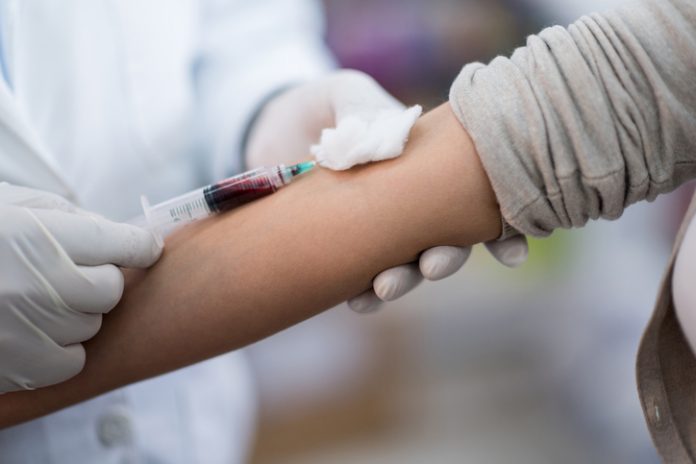
Biocept said today it will partner with University of California San Diego (UCSD) Medical Center on a clinical validation study of the company’s PD-L1 assay for patients diagnosed with non-small cell lung cancer (NSCLC).
Under the collaboration, whose value was not disclosed, Sandip Patel, M.D., an assistant professor of UCSD School of Medicine, will lead a 100-patient study designed to clinically validate Biocept's Target Selector™ PD-L1 assay.
The assay will be evaluated using the two common antibody clones for PD-L1 detection, 28-8 and 22C3, both of which have potential to offer high biomarker detection rates using liquid biopsy.
PD-L1 immunohistochemistry (IHC) on tumor tissue is a companion diagnostic for anti-PD-1 directed therapies in NSCLC and bladder cancer, and can predict response to immune checkpoint blockade. By pursuing detection of PD-L1 via liquid biopsy, Biocept said, it hopes to overcome several challenges associated with detecting tumor PD-L1 status via tissue biopsy.
These challenges include minimizing patient risk from a tissue biopsy, and providing a snapshot of the dynamic tumor landscape while avoiding avoid biopsy selection bias. Another challenge, the heterogeneity of tumors, may result in biopsy samples that do not reflect actual PD-L1 expression of the tumor under study, the company added.
“To date, primarily tissue testing has been available to assess PD-L1 status, and this study attempts to broaden the use of liquid biopsies to encompass PD-L1 scoring, which is crucial in determining whether immunotherapy may be appropriate for a patient in a given disease setting,” Dr. Patel said in a statement.
The validation study’s primary endpoint will be concordance between tissue biopsy and liquid biopsy for the detection of PD-L1 protein expression, Biocept said. The study’s secondary endpoint, the company added, will be the correlation between treatment response and PD-L1 status as detected using liquid biopsy.
“Immunotherapy has become an important treatment strategy for patients diagnosed with cancer and we believe that our unique liquid biopsy assay for PD-L1 offers a solution for rapid and non-invasive detection of this critical biomarker,” added Biocept President and CEO Michael Nall. “We continue to evaluate our Target Selector platform in clinical studies in which the identification of clinically actionable biomarkers, like PD-L1 protein expression, can help guide treatment decisions resulting in improved patient outcomes.”
Biocept expanded its liquid biopsy offerings into immuno-oncology in May 2016 when it commercially launched its PD-L1 protein expression test. The CLIA-validated test uses Biocept's proprietary, patented Target Selector platform with circulating tumor cells (CTCs) from a patient's blood sample, with the goal of detecting and monitoring PD-L1 protein expression throughout the course of a patient's cancer therapy. The PD-L1 test was developed by Biocept researchers in collaboration with David Rimm, M.D., Ph.D., of Yale University School of Medicine, a scientific advisor to Biocept.
Since then, Biocept launched a collaboration with Shilpa Gupta, Ph.D., of the University of Minnesota to assess Target Selector’s detection of PD-L1 and androgen receptor expression in patients diagnosed with bladder and prostate cancers. The company earlier this year granted rights to Oregon Health & Sciences University to commercially offer Target Selector services exclusively throughout Oregon.











